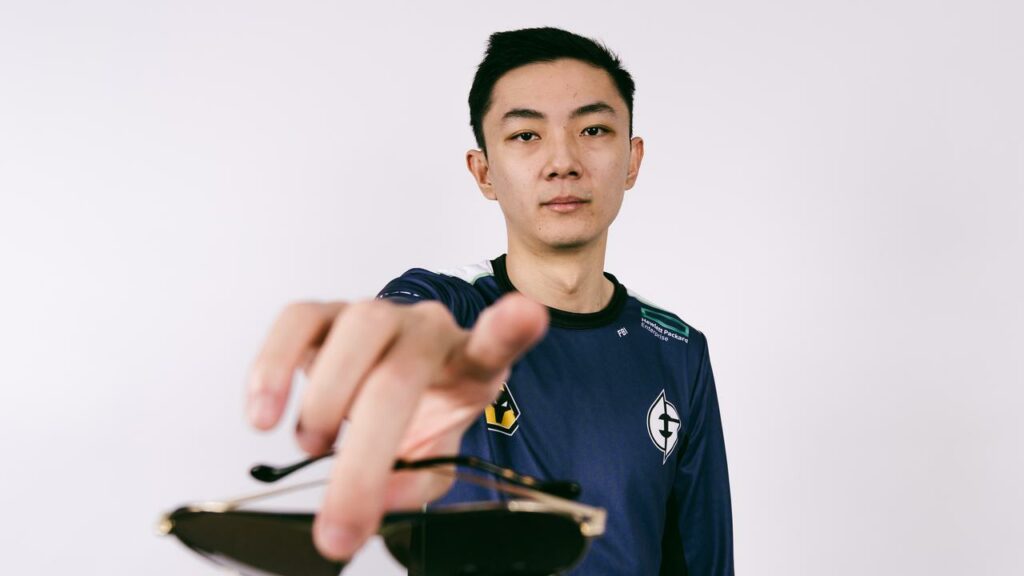From internet cafes to the world stage for Aussie gamer
Kat Wong |

Victor Huang used to get in trouble for playing video games, hiding his hobby by skipping school and spending his days in internet cafes.
Today, the 24-year-old’s formerly illicit pastime is a full-time job as he competes for million-dollar prize pools on the professional e-sports circuit.
Huang, known by the username FBI, rose to fame on multiplayer battler League of Legends, one of the world’s most popular games with more than 10 million daily players.
At 20, he became the first Australian to play in North America’s top professional competition for the game.
Within two years he was competing at worlds, the crown jewel in the lucrative e-sports calendar.
Huang started playing League of Legends as a teenager and immediately loved it. The same couldn’t be said for his parents.
“I come from a pretty traditional Chinese family,” he told AAP.
“My dad used to get really angry when he caught me playing games, so I had to hide it from them.”
Huang would ditch school and spend hours in front of a screen in an internet cafe in Sydney’s south, using his lunch money to pay for computer time.
Every day he played, his rank climbed a little higher.
The cafe’s owner eventually took notice and made him an offer that would go on to define his career.
“She told me if I advertised the internet cafe’s name on the leaderboard, she would give me free time. For me, that was a no-brainer,” he said.
Although the cafe has now closed, Huang has carried its name onto the global stage.
At the League of Legends world championship, 22 teams compete for a $US2.2 million ($A3.2m) prize pool before more than five million viewers.
It is only one of a string of professional tournaments for multiplayer video games, which include titles such as Valorant, Overwatch, Super Smash Bros and Dota 2.
In 2018, Melbourne-born Anathan Pham took home $3m after winning the International Dota 2 Championships when he was 18 years old. Over his career, he amassed almost $8m in prize money across 25 tournaments.
Within the gaming scene, Australian players are often seen as mediocre, but Huang said there was a lot of undiscovered talent in the region.
He was scouted after American e-sports coach Nicholas Smith, also known as Inero, saw him play.
At 19, Huang moved halfway across the world to play in the US and he is now based in Los Angeles.
“There’s a lot of risk, like any competitive sport,” he said.
“In e-sports, we’re very young when we come in and we dedicate long periods of our lives to the game. So if you aren’t successful, you could say you’ve wasted years of your life.”
But that wasn’t the case for Huang.
In 2021, his team won the LCS Championship, taking home $US20,000 and the title of North American champion.
He has his eyes on this year’s prize, but he isn’t the only Australian gunning for it.
In 2022, Brisbane-born Ibrahim Allami, known as Fudge, was part of the Cloud9 squad that beat Huang’s team to take out the championship.
In preparation for tournaments, Huang spends 10 to 12 hours per day training with his new team Evil Geniuses, trying to ignore the pressure of an uncertain and high-stakes industry.
His family has since come around on gaming and now watch all of his matches.
Huang’s dad has used his free time in retirement to learn about the game – and even offers advice on how Huang should play.
“He’s a bit clueless sometimes, but it’s pretty comical and I’m just glad they’ve supported me the whole way,” he said.
AAP